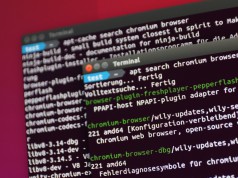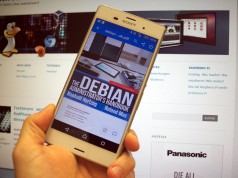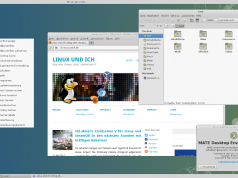Falls ihr es nicht mitbekommen haben solltet, am 16.8. eines jeden Jahres feiert Debian mit dem so genannten Debian Day seinen Geburtstag! Diesmal ist es jedoch nicht nur ein Geburtstag, nein es ist DER Geburtstag, denn Debian wird endlich erwachsen. Vor 18 Jahren, am 16. August 1993, hat Ian Murdock Debian über comp.os.linux.development aus der Taufe gehoben…
This is just to announce the imminent completion of a brand-new Linux release, which I’m calling the Debian Linux Release. This is a release that I have put together basically from scratch; in other words, I didn’t simply make some changes to SLS and call it a new release. I was inspired to put together this release after running SLS and generally being dissatisfied with much of it, and after much altering of SLS I decided that it would be easier to start from scratch. The base system is now virtually complete (though I’m still looking around to make sure that I grabbed the most recent sources for everything), and I’d like to get some feedback before I add the „fancy“ stuff.
Seitdem ist viel passiert. Debian wurde in dieser Zeit über sechs Ausgaben hin immer wieder aktualisiert. Drei Jahre pro Version ist natürlich eine lange Zeit und vielleicht auch für den Desktop nicht immer angemessen, doch Debian hat mich über die Jahre eigentlich nie enttäuscht. Schaut man sich die Ziele von damals an, so sieht man dass sie eigentlich auch heute noch sehr gut passen.
- Debian will be sleeker and slimmer. No more multiple binaries and manpages.
- Debian will contain the most up-to-date of everything. The system will be easy to keep up-to-date with a ‚upgrading‘ script in the base system which will allow complete integration of upgrade packages.
- Debian will contain a installation procedure that doesn’t need to be babysat; simply install the basedisk, copy the distribution disks to the harddrive, answer some question about what packages you want or don’t want installed, and let the machine install the release while you do more interesting things.
- Debian will contain a system setup procedure that will attempt to setup and configure everything from fstab to Xconfig.
- Debian will contain a menu system that WORKS… menu-driven package installation and upgrading utility, menu-driven system setup, menu-driven help system, and menu-driven system administration.
- Debian will make Linux easier for users who don’t have access to the Internet. Currently, users are stuck with whatever comes with SLS. Non-Internet users will have the option of receiving periodic upgrade packages to apply to their system. They will also have the option of selecting from a huge library of additional packages that will not be included in the base system. This library will contain packages like the S3 X-server, nethack and Seyon; basically packages that you and I can ftp but non-netters cannot access.
- Debian will be extensively documented (more than just a few READMEs).
- As I put together Debian, I am keeping a meticulous record of where I got everything. This will allow the end-user to not only know where to get the source, but whether or not the most recent version is a part of Debian. This record will help to keep the Debian release as up-to-date as possible.
- Lots more, but I’ll detail later…
Debian ist sehr schlank und kompakt, Debian ist einfach aktuell zu halten, Debian lässt sich einfach installieren und konfigurieren, Debian ist klasse dokumentiert usw… ohne Debian wäre freie Software nicht da, wo sie heute ist. Solltet ihr selber ein Dankeschön für Debian hinterlassen wollen, so schaut einfach mal bei http://thank-you.debian.net vorbei oder schickt einen Beitrag über Twitter oder Identi.ca mit dem Hashtag #thxdebian raus.












Naja, naja 😉
Dafür ist es extrem stabil.
Die Aussage ist ja auch 18 Jahre alt, aber wenn wir sie auf heute beziehen, dann Debian Stable, sondern Unstable und auch Sid. Von daher, ja Debian ist aktuell 🙂
Schon klar 🙂
Ich liebäugle ja mit Debian. Aber stable ist mir zu alt… da funktioniert mein Scanner auch nicht.
Kann ich testing gefahrlos im Alltag nutzen. Ich habe Angst, daß mir das Ding bei irgendeinem Update um die Ohren fliegt.
Grüße vom
Dickbauchigen Wombat
Testing benutze ich auch ab und an. Das ist schon im Großen und Ganzen sehr nutzbar.